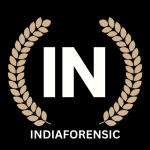If you’ve ever been intrigued by the world of forensic accounting and wondered about the career path it offers, you’re not alone. As someone who delved into the realm of forensic accounting courses, I, too, was eager to understand where this path might lead. Let’s explore the steps one might take to become a Certified Forensic Accounting Professional and the exciting possibilities that lie ahead.
Lay the Foundation
The journey begins with earning a bachelor’s degree in accounting or a related field. This foundational education is typically the minimum requirement for most forensic accounting positions. Building a strong knowledge base in accounting principles sets the stage for a successful career in the field.
Gain Hands-on Experience
To truly excel in forensic accounting, practical experience is vital. Consider working as an intern or an entry-level accountant to gain valuable insights into the world of finance and analysis. You might also explore opportunities to volunteer in financial investigations with law enforcement agencies or regulatory bodies. This real-world experience adds depth to your understanding of financial intricacies.
The Power of Certification
Earning a professional certification in forensic accounting can be a game-changer. Organizations like Indiaforensic offer various certifications such as the Certified Forensic Accounting Professional (#CFAP), Certified Bank Forensic Accountant (#CBFA), or Certified Stock Market Forensic Accountant (#CSMFA). These certifications not only showcase your expertise but also grant you credibility in the field.
Embark on Your Career
With a solid educational foundation and certification in hand, you’re now ready to embark on your career as a forensic accountant. Exciting opportunities await, whether it’s working for a law enforcement agency, regulatory body, or private firm. The demand for forensic accountants continues to grow as organizations recognize the importance of combating financial crimes.
Never Stop Learning
Forensic accounting is a dynamic field, and staying current with industry trends and regulations is essential. Keep your skills sharp and knowledge up-to-date through continuous education and professional development opportunities. Attend seminars, conferences, and workshops to enhance your expertise and adapt to the ever-changing landscape of forensic accounting.
Reach New Heights
As you gain experience and expertise, your career can soar to new heights. Take on more responsibilities, lead teams of forensic accountants, manage large-scale investigations or provide expert testimony in legal proceedings. The possibilities for growth and impact are vast in the world of forensic accounting.
To Conclude, the career path of a forensic accountant is an exciting journey of investigation and expertise. With a strong educational background, practical experience, professional certifications, and a thirst for knowledge, you can unlock doors to a fulfilling and rewarding career in this crucial field. As financial crimes continue to pose challenges, the role of forensic accountants becomes increasingly essential in safeguarding financial systems and upholding justice. Embrace this path, and your skills as a forensic accounting professional will not only contribute to organizations’ success but also make a significant difference in the fight against financial crimes.



